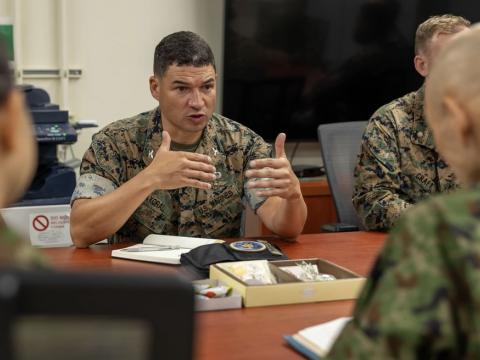U.S. Cyber Command and NSA Positioned To Persevere Personnel Cuts
At the House Armed Services Committee, Intelligence and Special Operations Subcommittee, Defense Intelligence Enterprise posture hearing on Thursday, Lt. Gen. William J. Hartman, acting commander of U.S. Cyber Command and performing the duties of the director of the National Security Agency (NSA), said his organizations are positioned to defend the homeland despite personnel cuts.
Hartman assumed the duties of acting U.S. Cyber Command commander and acting director of the NSA on April 3.
“NSA is focused on administration priorities, including defending the homeland, modernizing our capabilities, as well as our core function of code making and code breaking,” Hartman said.
According to Hartman, the NSA loses about 7% of its workforce to retirement every year, and the 8% personnel cut in the span of 90 days will be impactful. However, he said he’s confident the senior leaders who step up will be able to execute the agency’s mission.
“All of the personnel that are leaving the agency have done so on a voluntary basis,” Hartman said. “They've generally been retirement eligible, and they have taken advantage of one of these programs that allow them a bit more advantageous circumstances to leave.”
When the fiscal year 2026 budget comes out, Hartman said he can then talk more about his plan to provide resources and technologies to his workforce, but for now, he doesn’t think his commands lack authority.
Specifically, Hartman said the United States has a strategic advantage in using artificial intelligence (AI) over China because it’s used in all U.S. defense operations. He also noted the establishment of an AI task force that will help strengthen U.S. AI capabilities.
“The force that we face in China is significantly larger than ours, but our workforce is more talented,” Hartman emphasized, “and our ability to arm that talented workforce with artificial intelligence is the way we get to scale as it relates to the China problem.
Addressing quick turnover and short periods of time between transfers in the military, Hartman said he’s been working toward extending the length of tours for fully mission-qualified individuals and making sure that assignment policies at the NSA and U.S. Cyber Command for the same roles remain consistent, allowing service members to move between the two organizations and utilize their training and experience in the best way.
“Our nation is confronted with an increasingly complex and dynamic threat landscape in the cyber domain,” Hartman said. “However, I want to ensure you that U.S. Cyber Command and NSA are at the forefront of this challenge, armed with unparalleled capabilities and insights that place us at an advantage against our most formidable adversaries.”






Comments